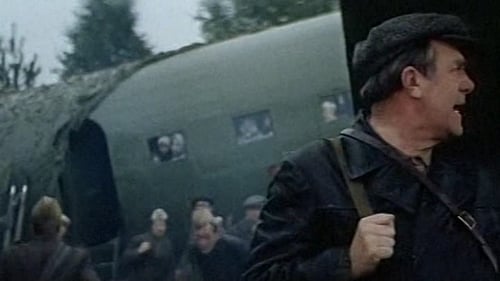
Borodin
In May 1941, a young instructor of the Komsomol Regional Committee of Belovezhskaya Pushcha Andrei Dyomushkin was invited to the graduation party of the Moscow Theatre School to create a professional theatre in the city. The war has crossed out all plans. Now he, along with the course of graduates, will have to go through the war and be the commander of the front acting fraternity in the current army "A Special Unit"...

Karla
The film is based on Sergei Narovchatov’s poem. Vassily Buslayev is an epic Russian hero who rose to defend the freedom and independence of his people. The strength and power of this son of a Novgorod governor, his friendship with simple folk enraged and scared the rich, fat merchants of the city. When they learned that the young man was setting out on a march to save his native land from the enemy, they couldn’t be more happy: how could he defeat a foe so mighty! But Vassily overcomes all intrigues and brings his expedition to a victorious end. He returns home a hero, and not alone but with a sweetheart. When a threat of enemy invasion again looms over Novgorod, people come and beg Vassily to defend their native land.

Andrey Rotar
Musician Stefan meets a young attractive woman Lidia. Stefan is going on tour to Austria, and Lydia, "accidentally" remembering her Viennese acquaintance, asks to give her a souvenir from Moldova. In Vienna, Stefan is met by people who are well aware of his private life and even familiar with his diary. The musician begins to suspect something is wrong, but when his daughter's well-being is threatened, Stefan becomes truly worried...
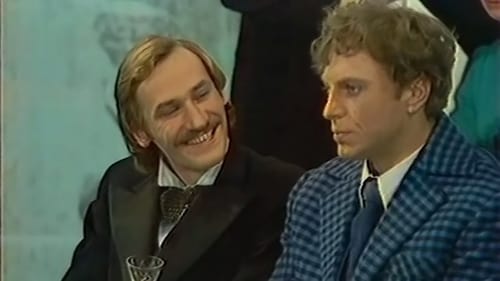
мистер Морз

Nikolai Karpovich Khmel, father of Yuri

Roman Neznamov

Фролов
Adyutant ego prevoskhoditelstva

Vasilchenko

Dunajev
Beautifully shot in black and white, and scripted by Tarkovsky's collaborator Andrei Konchalovsky, this powerful melodrama tells the story of a young boy who undertakes the perilous journey to Uzbekistan's capital Tashkent, to earn some money for his hungry family. Filming in the periphery of the Soviet Union, in a time of relative political relaxation, director Shukhrat Abbasov actually dared to depict the poverty and famine that resulted from the Bolshevik Revolution.

G.B.
A few days from the life of a young scientist responsible for the failed trail.

Kabarov
Based on the novel of the same name by Grigory Svirsky.
1942 year. The Great Patriotic War. The navigator Bratnov was shot down during the war, was captured, fled, returned to his people, was demoted and sent to serve in the construction battalion. His old front-line comrade Major Kabarov accidentally met him and took him to his unit. Kabanov, knowing about the lack of experienced navigators, is seeking to transfer Bratnov to his air force in the Northern Fleet, in the Arctic, to a tiny rocky island — "to the ends of the world."

A little girl named Katherine saved one boy's life during the bombing in Leningrad while under the Siege in WWII. The boy cannot speak yet. So she gave him a name Seryozha and provided him with food and care. She was later adopted by the boy's father, who recognized his son.
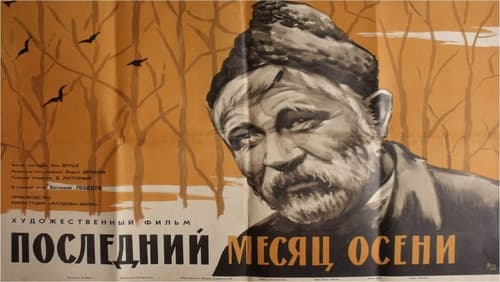
An older couple have four children who left them long ago. Tired of waiting for letters which never arrive, the father takes a trip to see how the children are doing.

Sobakin
Filmed adaptation of Rimsky-Korsakov's opera.

Project Administrator Krilov
In the near future, a friendly exploratory mission to Earth from the planet Zenturia crashes on Mars's moon Phobos, and cosmonauts from the USSR are sent to the difficult and dangerous rescue. Although this film was never shown in the USA in its entirety, producer Roger Corman adapted the plot premise for his 1966 sci-fi-horror opus, QUEEN OF BLOOD, and utilized some of its special effects in that film.

Father
Things take an interesting turn for Tanya and her mother when her father arrives with his foster son Kolya and new wife. This film is about Kolya and Tanya's bright, pure and bitter first love.
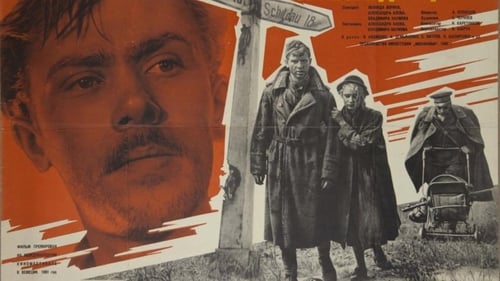
командир батальона
The time is World War II. Lidiya Shaporenko plays a pregnant German woman, trapped behind Russian lines. When the woman goes into labor, three loyal Soviets deliver her to a field hospital: a newly graduated officer, an affable truck driver, and a soldier shell-shocked into muteness. The dangerous trip to the hospital ends up a rite of passage for all concerned. The winner of a special gold medal at the Venice Film Festival, Peace to Him Who Enters was originally released in the USSR in 1961 under the title Mir Vkhodyashchemu.

Losev
Pilot Losev, who lost his family during the war, learns that his daughter Aurika was saved during the bombing, and sets off in search of her. The former pilot will survive many fates and stories before a familiar chorus of a lullaby helps him to recognize his daughter in a random fellow traveler.

Basmanov

An old man suddenly realizes that both his daughters aren't happy so he decides to help them to find happiness.
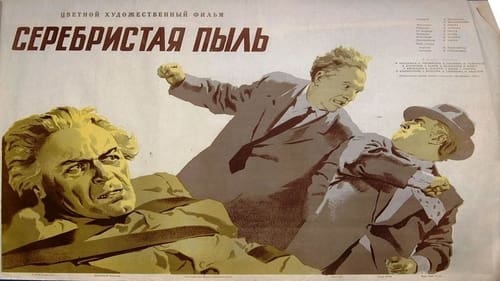
An American scientist invents a new weapon of mass destruction - silver dust. Corporate war breaks out between two military industry giants to own the weapon. The scientist dies and his son makes the discovery public with more consequences.

Propotei
Major timber merchant Yegor Bulychyov is terminally ill. In his house, he is surrounded by insignificant and greedy people, impatiently waiting for his death. Clever and insightful Yegor understands that he lived his whole life with strangers. He protests in his own way against the dissimulation and hypocrisy of the "masters" - the clergy, liberals, against the foundations of the bourgeois society that is going to collapse. Bulychyov's dying curse drowns his class in the powerful sounds of a revolutionary song.
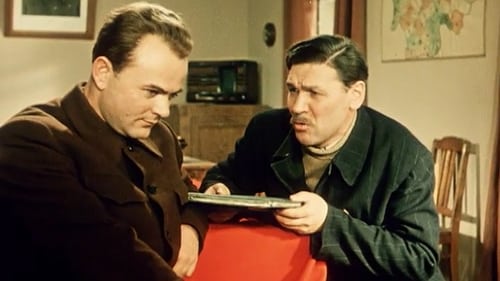
Stephan
Originally titled Vozvrachenia Vassilya Bortnikov, Vassili's Return was the last directorial effort by the great V.I. Pudovkin, who died in June of 1953. Like many of Pudovkin's later works, the film was diluted by interference from communist party officials; what remains, however, is well worth having, if miles removed from the brilliance of his earlier Mother, End of St. Petersburg and Storm over Asia. Based on a novel by G. Nikolayeva, the story centers upon a Russian named Vassili (Serge Lukynaov), who leaves his wife to do battle against the Germans in WW II. When Vassili is reported to have been killed in battle, his wife Avodtya (Natalya Medvedeva) marries another man. Per the film's title, Vassili returns, only to find his wife ostensibly out of his reach. Vassili and his former spouse eventually reunite as friends if not lovers, working side by side on a state-approved collective farm.
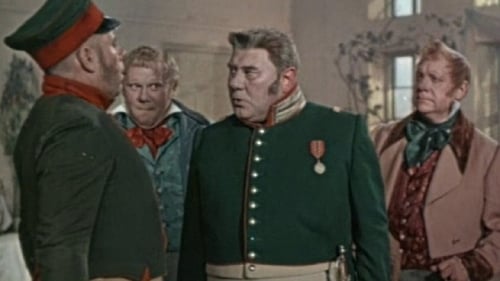
Music
Khlestakov is a young flamboyant crook, who is broke. He finds himself in a small Russian town, where local authorities are waiting for an undercover inspector from the capital St. Petersburg. Khlestakov is mistaken for an undercover inspector, and uses the situation for taking bribes from the local governor and flirting with both his wife and daughter. Khlestakov abuses the corruption and hypocrisy of the local authorities until, at the end, the real inspector shows up...

Nikolay Dobrolyubov
Growing up in a Ukrainian peasant family, knowing all hardships of serf life, young artist and poet Taras Shevchenko in the years of study clearly identifies the meaning of true art, which is to serve the interests of the people. The poems of Shevchenko are imbued with love for the common people. Fiery freedom-loving creativity of Taras Shevchenko is known throughout Russia. Nicholas I exiles the poet to the distant Caspian fort where he is to serve as an ordinary soldier and is banned from writing or drawing. In the poet's difficult days he has the support of Ukrainian soldier Skobelev, Polish revolutionary Sierakowski, captain Kosarev and the commandant of the fortress, Uskov. For the sake of his release Chernyshevsky and Dobrolyubov are hard at work. And so, the sick and aged Shevchenko is finally free. Together with Chernyshevsky and Dobrolyubov, he dreams of a bright future of the motherland, when the Russian and Ukrainian peoples throw off the chains of slavery.
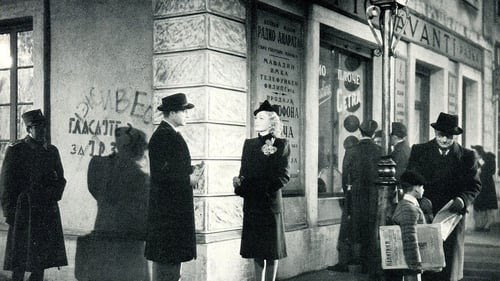
Document Z-3 (Italian:Documento Z-3) is a 1942 Italian spy film directed by Alfredo Guarini and starring Isa Miranda, Claudio Gora and Luis Hurtado. It was one of three Miranda films directed by Guarini that helped re-establish her in Italian cinema following her return from a largely unsuccessful spell in Hollywood. Many critics were not impressed with the film, feeling that Miranda had not recovered the spontaneity of her pre-Hollywood films. This is considered the first movie in which Federico Fellini has worked as a screenwriter.

















